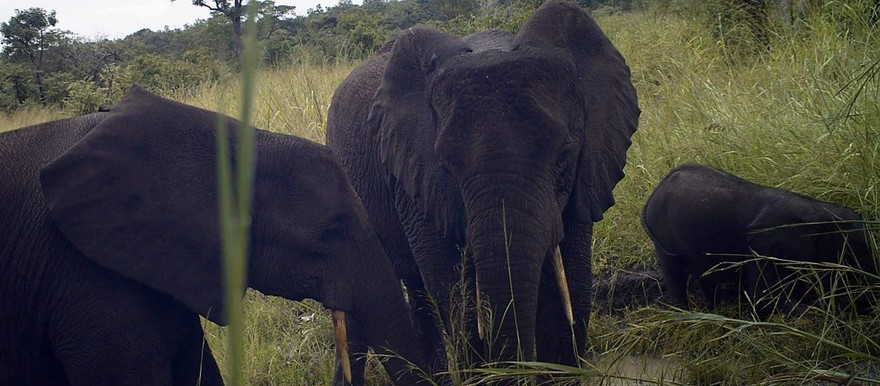Wildlife researchers have found forest elephants for the first time in South Sudan, along with dozens of other rare animal species in Western Equatoria state, a conservation organization said.
Scientists from Bucknell University, South Sudan’s Wildlife Service, and Fauna and Flora International organization set up dozens of camera traps over 8000 square kilometers in Western Equatoria state in the last six months, taking 20,000 photographs.
The cameras, which are designed to sense motion and take a photo when something walks by, managed to photograph 37 different species of animal, including five species not previously seen by science in South Sudan either before or after indendence, according to Fauna and Forest International.
These new species included rare forest elephants, a species of elephant which is smaller than the larger savannah elephants more commonly seen in South Sudan.
“This is an extremely important finding,” said DeeAnn Reeder, Professor of Biology at Bucknell University. “Forest elephants are Critically Endangered, and have declined dramatically over the last two decades. Finding them in South Sudan expands their known range — something that urgently needs further study because forest elephants, like their savannah cousins, are facing intense poaching pressure.”
Besides forest elephants, animals previously not known to exist in South Sudan found by the cameras include golden cats, water chevrotain, red river hogs, and giant pangolins.
Some of the other species captured on the cameras were chimpanzee, leopard, forest buffalo, four species of mongoose, spotted hyena, yellow-backed duiker, honey badger, monitor lizard, and a healthy population of western bongo, which is a type of antelope. All of these animals have been seen before in the country.
Threat of conflict
The researchers said the findings prove the ecological importance of the Western Equatoria forests and called for conservation and further study, but they warned that conflict poses a threat to the animals.
“Experience has shown that wildlife and ecosystems often suffer enormously during and after conflict, and in periods of political instability, and this depletion of natural resources affects some of the poorest and most vulnerable sectors of society,” says Adrian Garside of Fauna and Flora International.
Garside said his organization has helped train wildlife rangers to monitor animals and conduct foot patrols to deter illegal activity such as poaching.
Researchers have previously said that increased poaching of animals for meat and body parts has severely hurt wildlife numbers in South Sudan during the latest war.
Photos courtesy of Fauna & Flora International/Bucknell University




